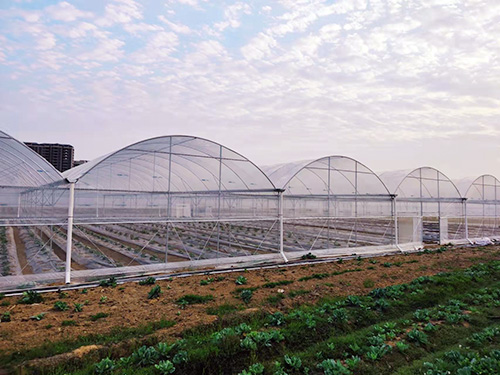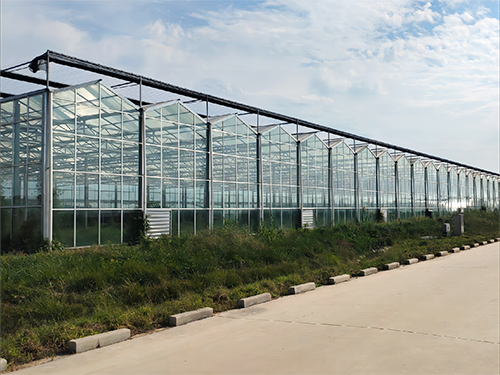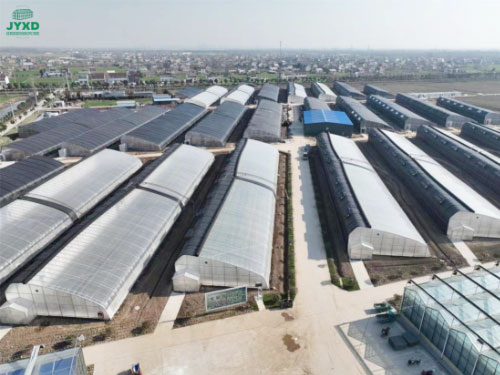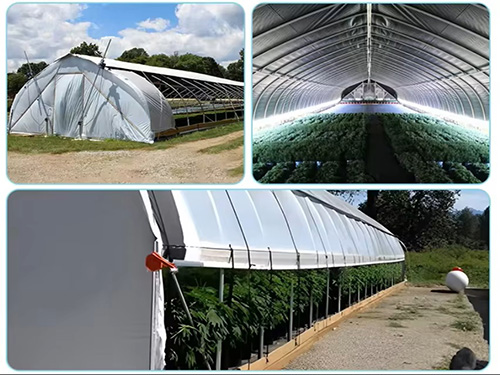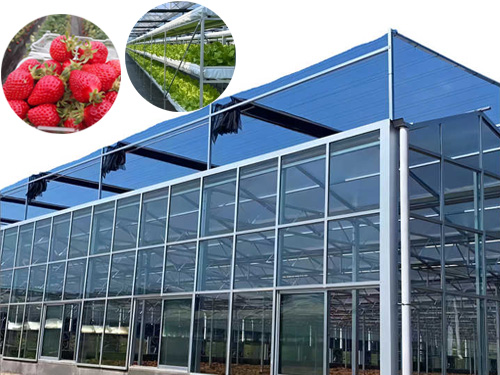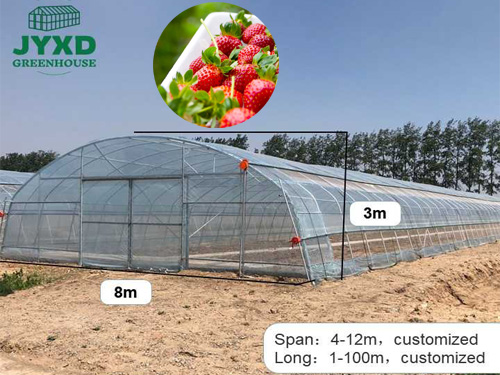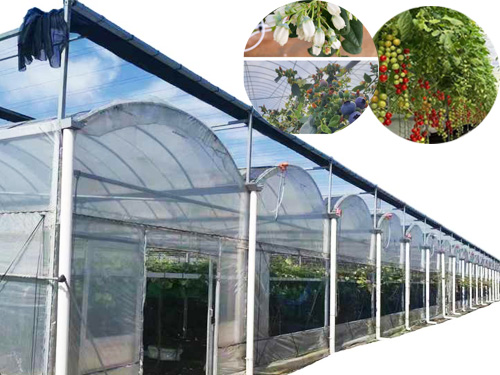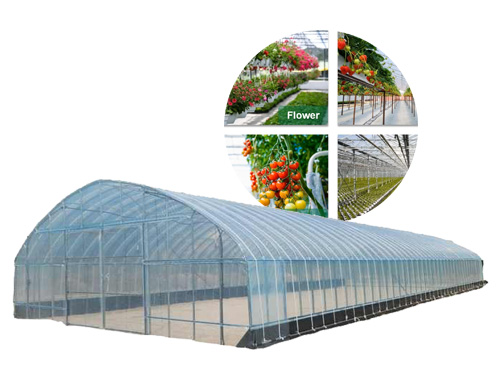NEWS DETAILS
NEWS INFORMATION
Organic Farming in Greenhouses: Challenges and Solutions
AUTHOR:jyxd-greenhouse DATE:2025-02-22 16:01:29 HITS:166
Organic farming in greenhouses is gaining popularity as a sustainable and efficient method for producing high-quality crops. However, despite its benefits, greenhouse organic farming comes with several challenges. This article explores the key obstacles and provides practical solutions to help growers achieve success.
Challenges of Organic Farming in Greenhouses
1. Soil Health and Fertility Management
Organic farming relies on natural fertilizers and compost instead of synthetic chemicals. However, maintaining soil fertility in a controlled environment can be challenging. Over time, soil can lose its essential nutrients, leading to reduced crop yields.
Solution:
• Use high-quality organic compost and crop rotation techniques.
• Apply natural soil amendments such as worm castings, bone meal, and seaweed extracts.
• Integrate cover crops like clover and alfalfa to improve soil structure and fertility.
2. Pest and Disease Control
Without synthetic pesticides, organic greenhouse farmers must find alternative ways to manage pests and diseases. The enclosed environment can sometimes promote the rapid spread of infestations.
Solution:
• Introduce beneficial insects such as ladybugs and predatory mites.
• Use organic-approved pesticides like neem oil and diatomaceous earth.
• Implement proper ventilation and humidity control to reduce fungal growth.
3. Climate and Temperature Regulation
Maintaining the ideal temperature and humidity levels in a greenhouse can be complex, especially in extreme weather conditions. Organic farming methods limit the use of artificial climate control, making it essential to find natural ways to regulate the environment.
Solution:
• Use thermal screens and shading systems to manage temperature.
• Install proper ventilation and fans to maintain airflow.
• Utilize compost heating systems for natural warmth during colder months.
4. Water Management and Irrigation
Efficient water use is critical in organic farming, as excessive moisture can lead to mold and root diseases, while water shortages can stunt plant growth.
Solution:
• Use drip irrigation systems to deliver water directly to plant roots.
• Collect and recycle rainwater for sustainable irrigation.
• Apply mulch to retain soil moisture and reduce water evaporation.
5. Nutrient Availability and Organic Fertilization
Since synthetic fertilizers are not allowed, ensuring a consistent nutrient supply can be difficult. Organic fertilizers tend to release nutrients more slowly than their chemical counterparts.
Solution:
• Use compost tea and liquid seaweed extract for a steady nutrient supply.
• Rotate crops to prevent nutrient depletion.
• Apply rock phosphate, green manure, and fish emulsion to enrich the soil naturally.
Benefits of Organic Greenhouse Farming
Despite these challenges, organic greenhouse farming offers numerous benefits:
• Higher Market Value: Organic produce is in high demand and often sells at a premium price.
• Environmental Sustainability: Reduced chemical use leads to less pollution and healthier ecosystems.
• Year-Round Production: Greenhouses provide a controlled environment, allowing for continuous crop cultivation.
• Healthier Crops: Organic methods result in nutrient-rich, chemical-free produce, attracting health-conscious consumers.
Conclusion
While organic greenhouse farming presents several challenges, these obstacles can be overcome with the right strategies. By focusing on soil health, pest management, climate control, water conservation, and organic fertilization, growers can successfully cultivate high-quality organic crops. Investing in sustainable greenhouse practices will not only enhance productivity but also contribute to a healthier and more eco-friendly agricultural future.
Would you like additional content, such as specific organic greenhouse crop recommendations or case studies?
Hebei Juyou Xinda Greenhouse Facilities Co.,Ltd.
Copyright © 2024-2025 https://www.jyxd-greenhouse.com. All Rights Reserved Hebei Juyou Xinda Greenhouse Facilities Co.,Ltd.Copyright




 Current Location:
Current Location: